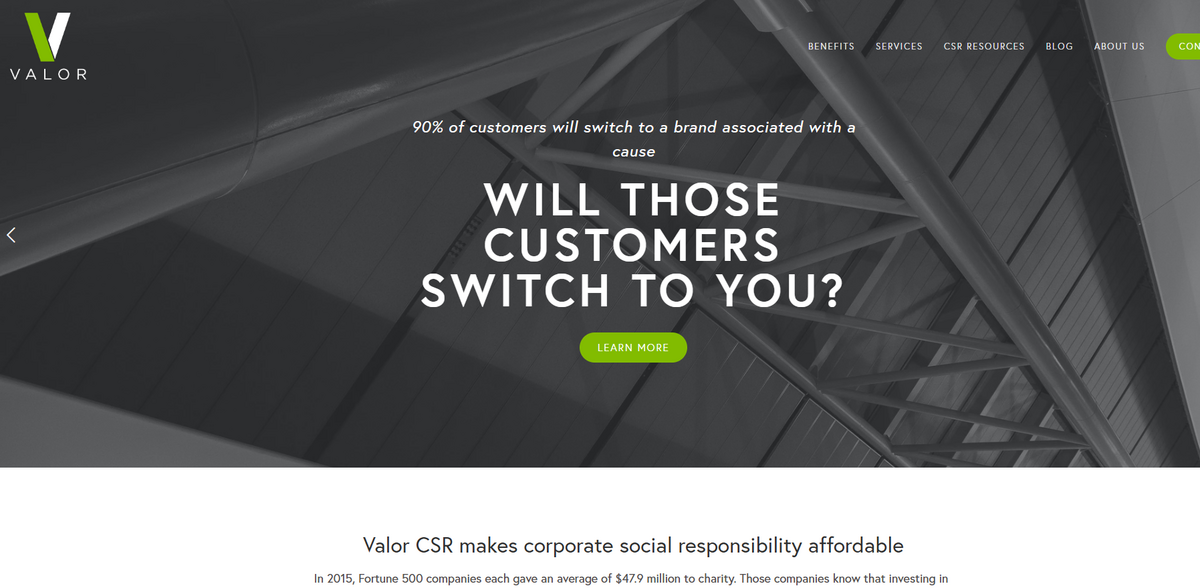What the Project Is
This project centers on harnessing the power of Corporate Social Responsibility (CSR) to drive both social and business value. It is all about associating a brand with a cause, where 90% of customers are inclined to switch to a brand that stands for something meaningful. Companies that excel in CSR can see benefits such as customers willing to pay up to 20% more for products and services, as well as an impressive boost in internal productivity — up to 13% in some cases. In today’s competitive market, the project demonstrates that making a positive impact isn’t just about donations or good intentions; it is a strategic move that catalyzes overall success.
Main Benefit of CSR Initiatives
The benefits of an effective CSR program are backed by compelling facts:
- 90% of customers will switch to a brand associated with a cause.
- Customers will pay up to 20% more for products and services provided by a company with excellent CSR.
- 87% of customers expect companies to do more than make a profit.
- Effective CSR can increase productivity by up to 13%.
- In 2015, 81% of S&P 500 companies were actively pursuing CSR activities.
- Strategic CSR can provide a 10% boost in customer satisfaction.
- In 2015, Fortune 500 companies each gave an average of $47.9 million to charity, demonstrating the huge potential benefits of investing in social responsibility programs.
Marketing and Sales Insights
When it comes to marketing and sales, differentiating the company with a strong reputation for social responsibility is key. Every marketing strategy benefits from data that shows 90% of customers are willing to switch to a brand associated with a good cause. Add to this that 80% of customers would actively tell friends and family about a company’s CSR efforts, and a clear message emerges: a cause-driven brand resonates. There is also the fact that every $1 spent on corporate philanthropy could generate $6 in increased sales revenue (subject to the law of diminishing returns!). In short, a robust CSR program not only creates a positive public image but also serves as a driver for increased sales and market growth.
Reputation and Risk Management
Great CSR performance not only attracts new customers but also helps in reducing risk and protecting a company’s reputation. Indeed, 87% of customers expect companies to do more than simply make a profit, and 91% have a more positive view of a company that supports social or environmental issues. During times of crisis, a well-managed CSR program can even protect between 4-7% of a firm’s total value. This data points toward CSR’s dual role in enhancing customer satisfaction and serving as a buffer during tough times. It’s a clear indicator that a company’s commitment to social responsibility has tangible benefits in safeguarding its reputation.
Human Resources and Internal Benefits
Internally, the project’s focus on CSR brings substantial benefits to human resources. Some of the most powerful effects of a good CSR strategy are witnessed within the company itself: productivity increases up to 13%, and the annual turnover rate decreases by 25-50%. In addition, 72% of millennials — and 53% of all employees — say that having a job where they can make an impact is a crucial factor in their happiness. A strong CSR program can attract higher performing workers, making the workforce more motivated and aligned with the company’s values. This internal alignment not only boosts performance but also fosters a more dynamic and committed team.
Firm Value and Financial Outcomes
It’s no longer up for debate that effective CSR programs actively generate financial returns. When examining firm value, effective CSR can boost the market value of a company by 4-6%. Moreover, the cost of equity can be reduced by 1% when a company has strong social responsibility programs in place. From the perspective of finance and risk management, excellent CSR performance can lead to a reduction in the cost of debt by 40-45 basis points. These figures underline that investing in CSR is not only strategically sound from a social and ethical viewpoint but also from a financial one. The alignment of social goals with business metrics creates a holistic model of growth.
Project Impact and Sustainable Development Goals
- SDG 8: Decent Work and Economic Growth
- SDG 9: Industry, Innovation and Infrastructure
- SDG 12: Responsible Consumption and Production
- SDG 13: Climate Action
- SDG 17: Partnerships for the Goals
Future Outlook and Strategic Direction
Looking ahead, the project signals a shift in how companies approach business. With tangible gains in customer satisfaction, sales revenue, and overall market value, CSR is evolving from an optional add-on to a core business strategy. The figures — from 90% customer switches to a 10% boost in customer satisfaction — illustrate a broader trend where social and environmental commitments directly correlate with financial performance and brand loyalty. The dynamic nature of today’s market means that occasional pauses and reflective moments, represented by ellipses (…) in the decision-making process, are essential for adapting strategies in real-time. In essence, by integrating strong CSR policies, companies are not only investing in their communities but also in their futures, ensuring sustainable growth and a resilient business model.


















